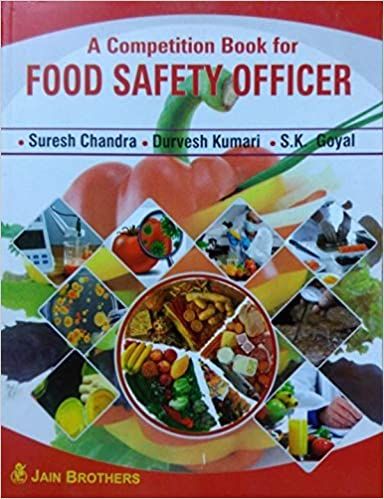Fruit Products Order -1955, promulgated under Section 3 of the Essential Commodities Act - 1955, with an objective to manufacture fruit & vegetable products maintaining sanitary and hygienic conditions in the premises and quality standards laid down in the Order.
This order was earlier implemented by Ministry of Food Processing Industries (now by FSSAI) through the Directorate of Fruit & Vegetable Preservation, Headquarter at New Delhi.
‘FPO’ standard mark shall be imprinted on the products
It is mandatory for all manufacturers of fruit and vegetable products including some non fruit products like non fruit vinegar, syrup and sweetened aerated water to obtain a license under this Order.
REGULATIONS-
•Regulates manufacture and distribution of all fruit & vegetable products.
•Exempted from the provisions of the order to products prepared by Drug control act and Educational Institutions for training purposes. Quantity shall not exceed 10 kg.
•License shall be issued after the satisfaction of quality of product, sanitation, personnel, hygiene, machinery, equipment and work area requirements as per the schedule specified.
•Fruit product means any of the following articles,
1. Non fruit beverages, syrups and sherbets
2. Vinegar, whether brewed or non-fruit
3. Pickles
4. Dehydrated fruits and vegetables
5. Squashes, crushes cordials, barley water, barreled juice, and ready to serve beverages, fruit nectars or any other beverages containing fruit juices or fruit pulp
6. Jams, jellies and marmalades
7. Tomato products, ketchup and sauces
8. Preserves, candied and crystallized fruit and peel
9. Chutneys •Canned and bottled fruits, juices and pulps
10. Canned and bottled vegetables
11. Frozen fruits and vegetables
12. Sweetened aerated water and without fruit juice pr fruit pulp
13. Fruit cereal flakes
14. All unspecified fruit and vegetable products which are considered microbiologically safe and contains only permitted additives within permissible limits.
Constituted under Essential Commodities Act it is mandatory for all manufacturers of Fruit and Vegetable Products to obtain a licence under FPO. The act is implemented by the Food Safety and Standards Authority of India through Directorate of Fruit & Veg. Processing at its Regional Offices.
The Fruit Product Order (FPO) lays down statutory minimum standards in respect of the quality of various fruits and vegetable products and processing facilities at manufacture, storage and sale. The Agricultural marketing Advisor is authorized by law to issue a license for manufacturing fruits and vegetable products, after due inspection of the factory for hygiene, sanitation and quality of formulation. Periodic inspection by Government inspectors in establishments is carried out to ensure conformity of standards by processors. Licenser is empowered to put the FPO specification mark on the product. The products covered in FPO include, fruit juice, pulp concentrate, squashes, cordials, crush, fruit syrups, nectar, aerated water containing fruit juice or pulp and read to serve beverages etc., Depending on their quality the products are grade in four categories as ordinary, fair, good and special. The FPO specifications cover list of constituents, a method of presentation permissible colors in the preparation and also minimum quality requirement of the product. An expert committee known as the Central Food Product Advisory Committee deals with all matters relating to the FPO.
FPO also lays down specific requirements in regard to the following:
Containers and labeling requirement
Limits of poisonous metals in fruit products
15. List of permissible harmless food colors
16. Limits for permitted preservatives in fruit products
17. Other permitted additives
18. Consumer Protection Act 1986:
19. Government of India has accorded a very high priority to the consumer protection programme. Ministry of food and Consumer Affairs, Department of Consumer Affairs has been designated as the Nodal Department to deal with the area of consumer protection. Since 1986, the department is taking a number of measures to promote a strong and broad based consumer movement in the country. The main objective of this Act is to provide better protection for the consumer in terms of quality of the product he buys. Unlike the existing laws which are preventive in nature, the provisions of this Act are compensatory in nature. This Act is intended to provide simple, speedy and inexpensive redressal to the consumer's grievance and relief of specific nature. The act has been amended in 1993 both to extend its coverage and scope and to enhance the powers of redressal machinery.








